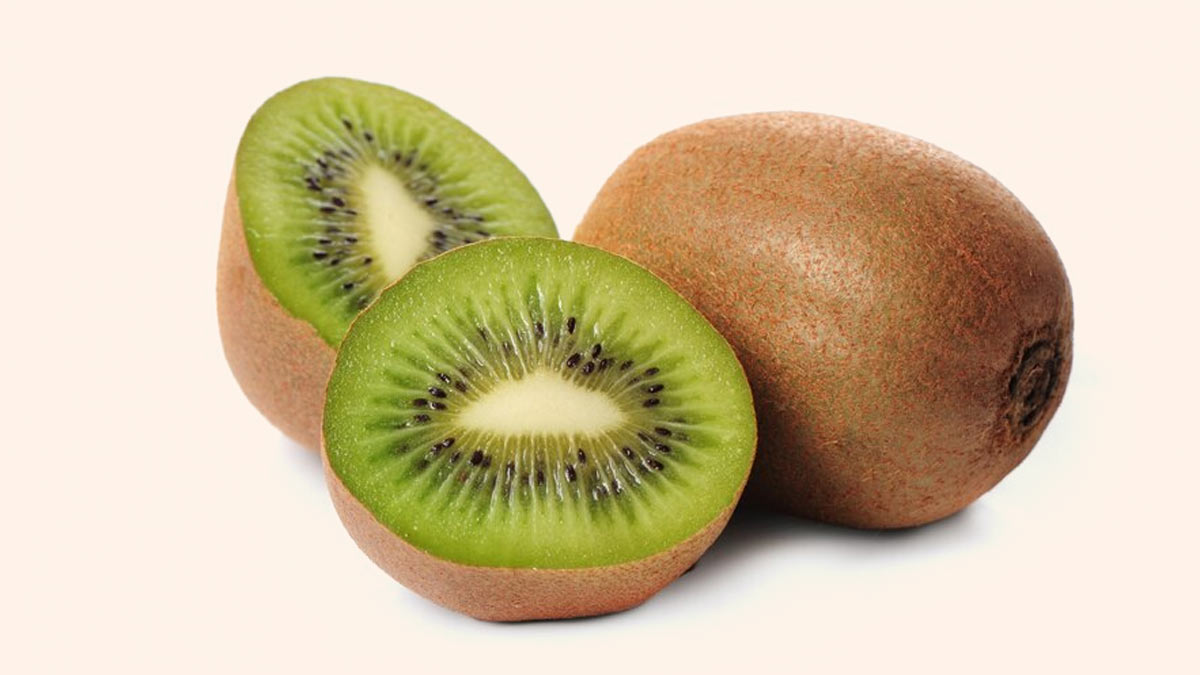
When it comes to heart health, many of us focus on reducing cholesterol, managing blood pressure, and getting enough exercise. But did you know that the food you eat plays a crucial role in cardiovascular well-being? One fruit that stands out in promoting heart health is the humble kiwi. Packed with essential nutrients, antioxidants, and fibre, kiwi may be a powerful addition to your diet for keeping your heart in top shape.
Table of Content:-
In an exclusive interaction with the editorial team of Onlymyhealth, Dr Shubendu Mohanty, Sr Consultant Cardiology, Shardacare, Healthy City - Noida, explained how kiwi can help with better cardiovascular health.
Heart-Healthy Nutrients in Kiwi
Kiwi is a nutritional powerhouse, boasting an impressive array of vitamins, minerals, and bioactive compounds that contribute to heart health:
1. Rich in Vitamin C
Kiwi is an excellent source of vitamin C, a potent antioxidant that helps reduce oxidative stress and inflammation—both of which are linked to heart disease.

Also Read: Why Eating Strawberries Can Sometimes Cause Gas: Expert Sheds Light
2. High in Fiber
The soluble fiber in kiwi can help lower bad cholesterol (LDL) levels, reducing the risk of plaque buildup in the arteries.
3. Potassium for Blood Pressure Control
Kiwi is loaded with potassium, a mineral that helps regulate blood pressure by counteracting the effects of sodium and promoting the relaxation of blood vessels.
4. Natural Blood Thinner
Studies suggest that kiwi may reduce platelet aggregation, preventing blood clots that can lead to heart attacks or strokes.
5. Polyphenols and Antioxidants
Kiwi contains bioactive compounds like flavonoids and carotenoids that protect the heart by reducing inflammation and improving vascular function.

How Kiwi Benefits Your Cardiovascular System
According to Dr Mohanty, a few benefits of cardiovascular health include:
1. Lowers Blood Pressure
Hypertension is a major risk factor for heart disease. Research has shown that consuming kiwi regularly can lead to lower blood pressure levels. A study found that eating three kiwis per day resulted in a more significant reduction in blood pressure compared to eating apples.
2. Reduces Bad Cholesterol and Supports Good Cholesterol
The fibre and antioxidants in kiwi help lower LDL (bad cholesterol) while promoting HDL (good cholesterol), which is essential for maintaining a healthy cardiovascular system.
Also Read: Why Eating Strawberries Can Sometimes Cause Gas: Expert Sheds Light
3. Improves Blood Circulation
The natural blood-thinning properties of kiwi help improve circulation, reducing the risk of clot formation that can lead to strokes and heart attacks.
4. Fights Inflammation and Oxidative Stress
Chronic inflammation is a key contributor to heart disease. The antioxidants in kiwi work to neutralise free radicals, reducing oxidative damage to blood vessels and the heart.
How to Incorporate Kiwi into Your Diet
Adding kiwi to your diet is easy and delicious. Here are a few simple expert-approved ways to enjoy it:
- Slice and eat it as a quick snack.
- Blend it into smoothies with other heart-healthy fruits.
- Add it to salads for a burst of flavour and nutrition.
- Use it as a topping for yoghurt or oatmeal.
- Make a refreshing kiwi salsa to pair with grilled fish or chicken.
Bottomline
Kiwi is more than just a tasty fruit—it’s a heart-healthy superfood that can help lower blood pressure, reduce cholesterol, and protect against inflammation. By incorporating kiwi into your daily diet, you can support your cardiovascular health naturally and deliciously. As always, consult your healthcare provider before making any significant dietary changes, especially if you have underlying health conditions.
Also watch this video
How we keep this article up to date:
We work with experts and keep a close eye on the latest in health and wellness. Whenever there is a new research or helpful information, we update our articles with accurate and useful advice.
Current Version
